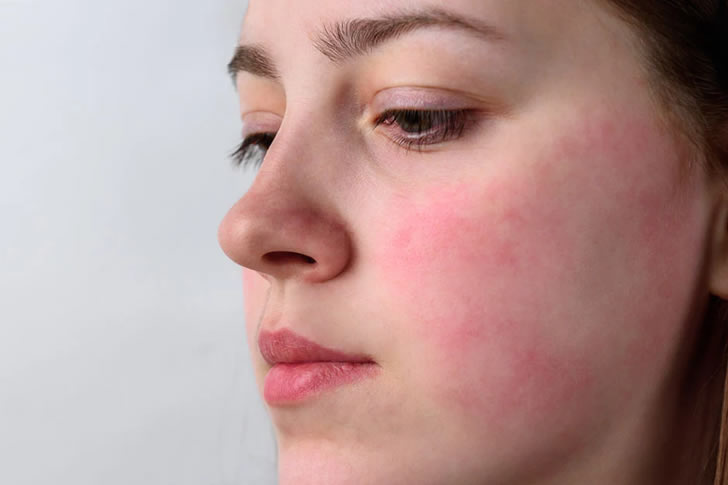Understanding Psoriasis: Types, Symptoms, Causes, and Management
Psoriasis is a chronic skin condition affecting millions worldwide, significantly impacting their quality of life. This article explores the types, symptoms, causes, and effective management strategies for psoriasis.

What is Psoriasis?
Psoriasis is a long-lasting autoimmune disease characterized by patches of abnormal skin. These patches are typically red, itchy, and scaly, varying in severity from small, localized areas to complete body coverage.
Types of Psoriasis
Plaque Psoriasis
Plaque psoriasis is the most common form, affecting about 80-90% of people with psoriasis. It causes dry, raised, red skin lesions (plaques) covered with silvery scales.
Guttate Psoriasis
Guttate psoriasis primarily affects young adults and children. It is usually triggered by a bacterial infection like strep throat. It appears as small, water-drop-shaped, scaling lesions on the trunk, arms, legs, and scalp.
Inverse Psoriasis
Inverse psoriasis affects the skin folds of the groin, buttocks, and breasts. It causes smooth patches of red, inflamed skin that worsen with friction and sweating.
Pustular Psoriasis
Pustular psoriasis is a rare form that causes white pustules (blisters of noninfectious pus) surrounded by red skin.
Erythrodermic Psoriasis
Erythrodermic psoriasis is the least common but can be life-threatening. It causes a widespread, fiery redness over most of the body, which can cause severe itching and pain.
Symptoms of Psoriasis
Common Signs and Symptoms
- Red patches of skin covered with thick, silvery scales
- Dry, cracked skin that may bleed
- Itching, burning, or soreness
- Thickened, pitted, or ridged nails
- Swollen and stiff joints
Causes and Risk Factors
Causes of Psoriasis
Psoriasis is thought to be related to an immune system problem with T cells and other white blood cells, called neutrophils, in your body.
Risk Factors
- Family history: Having one or both parents with psoriasis increases your risk.
- Viral and bacterial infections: People with HIV are more likely to develop psoriasis.
- Stress: High stress levels may increase the risk of psoriasis.
- Obesity: Excess weight increases the risk and severity of the disease.
- Smoking: Smoking tobacco not only increases your risk of psoriasis but also may increase the severity of the disease.
Management and Treatment
Treatment Options
- Topical Treatments
- Corticosteroids
- Vitamin D analogues
- Anthralin
- Topical retinoids
- Calcineurin inhibitors
- Salicylic acid
- Light Therapy
- Sunlight
- UVB phototherapy
- Goeckerman therapy
- PUVA
- Systemic Medications
- Oral or injected drugs that affect the whole body
- Biologics
Lifestyle and Home Remedies
- Moisturize your skin
- Avoid triggers such as stress and smoking
- Maintain a healthy diet
- Regular bathing to remove scales
Treatment Costs
| Treatment Type | Estimated Cost Per Month |
|---|---|
| Topical Treatments | $50 – $300 |
| Light Therapy | $100 – $1,000 |
| Systemic Medications | $500 – $10,000 |
| Biologics | $1,000 – $20,000 |
Professional Analysis
Mind Map (Text-Based)
- Psoriasis
- Types
- Plaque
- Guttate
- Inverse
- Pustular
- Erythrodermic
- Symptoms
- Skin patches
- Dry skin
- Itching
- Causes
- Immune system
- Genetics
- Infections
- Management
- Topical treatments
- Light therapy
- Systemic medications
- Lifestyle changes
- Types
Statistical Table (Text-Based)
| Type of Psoriasis | Percentage of Cases |
|---|---|
| Plaque | 80-90% |
| Guttate | 8% |
| Inverse | 2-4% |
| Pustular | Rare |
| Erythrodermic | Rare |
QA Section
Q: What are the triggers for psoriasis?
A: Common triggers include infections, stress, cold weather, smoking, heavy alcohol consumption, and certain medications.
Q: Is psoriasis contagious?
A: No, psoriasis is not contagious. It cannot be passed from person to person.
Q: Can diet affect psoriasis?
A: Yes, maintaining a healthy diet can help manage symptoms. Some people find that reducing alcohol intake and following an anti-inflammatory diet can reduce flare-ups.
Conclusion
Psoriasis is a chronic and often challenging condition to manage, but with proper treatment and lifestyle adjustments, individuals can significantly improve their quality of life. Consult with healthcare professionals to determine the best treatment plan tailored to your specific needs.
References:







Recent Comments